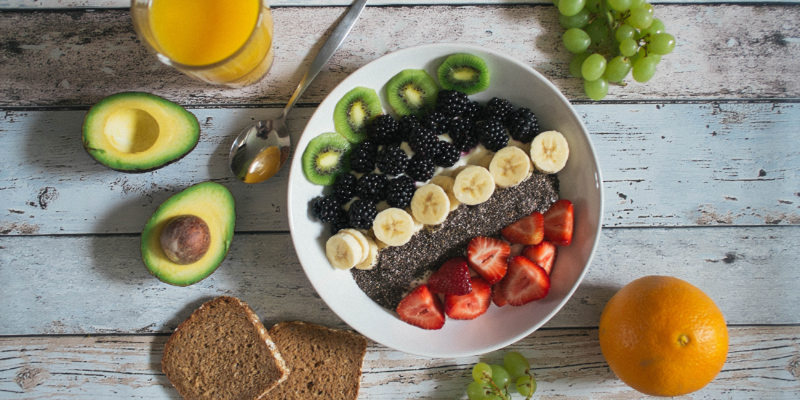Hydration for Ostomates
When the summer months are upon us, it is a great time of year with lots of social engagements, fun and frivolity. And winter is a great time for staying...

A common theme I am noticing with many of my ostomate clients at the moment is a lack of confidence. Not a lack of confidence in themselves, but a lack of confidence in pursuing normal day to day activities such as shopping, socialising and even going to work. And this lack of confidence is stemming from issues with stomal output such as leakages, accidents and unpredictable events which can all cause ongoing embarrassment and fear.
Having a stoma is a new way of living, and learning to cope with it can be more challenging for some due to a variety of reasons. But eventually, all going well and with support from family, friends and the medical community, everything settles down and returns to a semblance of normality over time. Life goes on.
However, if this doesn’t occur, or if problems then arise down the track which results in leakages and/or accidents, it can lead to restriction of daily activities and reduction in enjoyment of life. This is not an ideal way to live long term if a solution is possible. Being able to move about freely and with confidence in the local or wider environment is important socially as well as mentally. It is also necessary in order to fulfil many of the day to day activities that are a mandatory part of life, such as grocery shopping, routine errands, doctor’s visits etc. To address this issue there are several factors that should be examined in the search for a solution.
One of the first options to consider when leakages or accidents are restricting daily activities is to consult with a Stomal Therapy Nurse to see if the leaks or accidents are related to the appliance. This is relevant for all ostomates, i.e. urostomates as well as colostomates and ileostomates. For a range of reasons the appliance may not be fitting correctly or adhering sufficiently so there is not a good seal around the stoma. There may be an alternative appliance that suits your current situation more appropriately.
If the leaks or accidents are related to gastrointestinal output rather than bladder fluids, then a second option, for colostomates and ileostomates in particular in these circumstances, is to evaluate dietary intake to determine if there is a particular food or foods that are causing the issue. Fat, fibre and lactose are common problems for some people that result in diarrhoea, and the rapid and excessive output that ensues can put pressure on the appliance that results in leakage. This situation is compounded if the appliance is not fitting correctly in the first place. Examining dietary intake over a period of time and correlating it with the timing and frequency of accidents can shed light on whether any of these foods are the problem. However, unfortunately the solution may not be as simple as this.
The fact is that it may not be one food in isolation that is the cause of the accidents, but possibly a combination of foods together that are the culprits. More extensive dietary evaluation is required in this case to determine what the particular food combinations could be that are causing the issue, and professional assistance is recommended. This is the level that I have been working on with my particular clients in an effort to provide some clarity and resolution. They are monitoring their dietary habits and stomal output over a period of time and providing feedback to me so I can then search for links between the two and identify the culprits or issues. There is a lot of variation in people’s food tolerances and limits, especially after stomal surgery, and so the findings are often very individualistic.

A third option to consider when leakages or accidents are becoming a problem and interfering with quality of life is factors outside of the appliance and food intake. The gastrointestinal tract is a sensitive organ that is easily prone to being upset by variables such as stress, lack of sleep and fatigue. Each of these factors can affect the delicate balance and harmony within the digestive system, resulting in abnormal bowel function. This may manifest as diarrhoea, accidents, unpredictable bowel habits, loss of tolerance to certain foods and/or excessive flatulence.
An increased level of stress in particular is a common theme for many ostomates, often without the individual being aware of it. A question I always ask my patients when we are exploring this issue of recent onset of leaks or accidents is what has been going on for them lately? Have there been any events in their life that have triggered an increased amount of stress that may be upsetting the normal rhythm of their life and therefore their gastrointestinal function? As mentioned earlier, adapting to becoming an ostomate can be more stressful for some individuals than others, and so a degree of stress may be stemming from this factor alone. However, for others it could be completely unrelated. Spending some time identifying if there are any current stressors in your life can be valuable.
If it turns out that stress is a factor in the situation, then there are dietary and supplemental strategies that can provide support to both mind and body. Additionally, applying lifestyle measures that also calm the mind and reduce the impact of stress on the body is important. Gentle exercise, deep breathing, relaxation techniques, fun activities and good quality sleep can help to alleviate some of the problems and restore efficient and effective digestive function.
Leaks and accidents can be caused by many factors, of which dietary intake is certainly a major one. There may be a simple and obvious culprit that can be easily identified and restricted in the diet, or more extensive evaluation may be required. Either way it should be considered and explored, ideally with professional support and guidance. Stress may also be playing a role, and this should be addressed and alleviated as well. If, like my current clients, you feel you are losing confidence due to unpredictable stomal output and would like assistance to address this concern, either from a food perspective or in relation to the impact of stress, lack of sleep and fatigue, please contact me regarding consultation options.
Wishing you good health and happy days,
Margaret